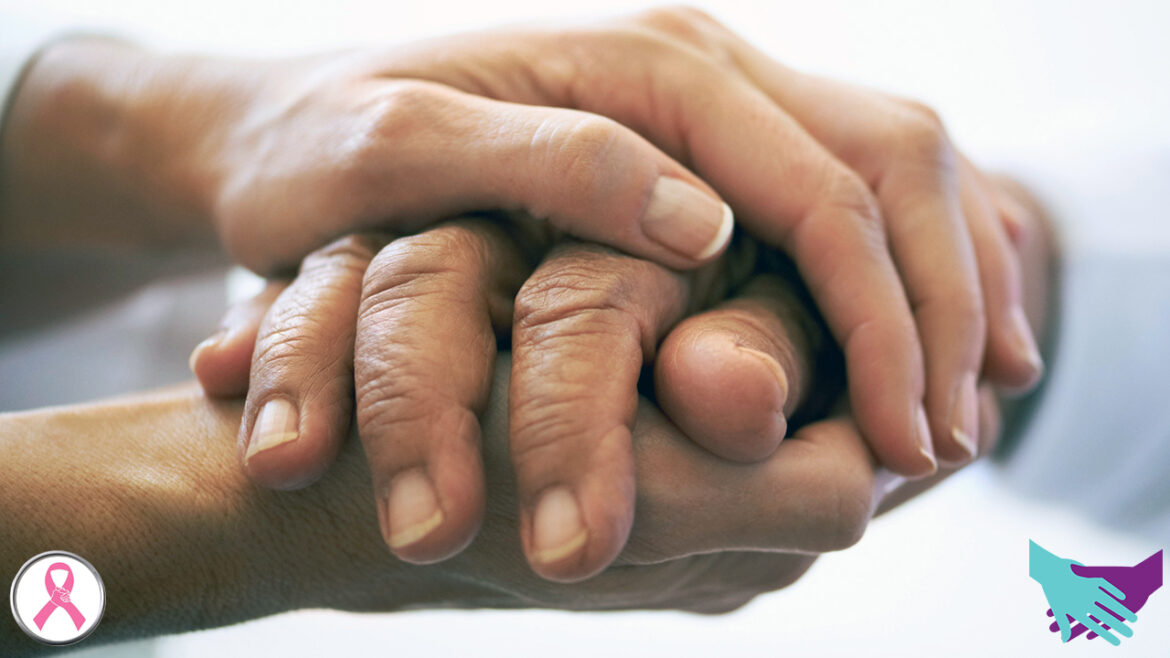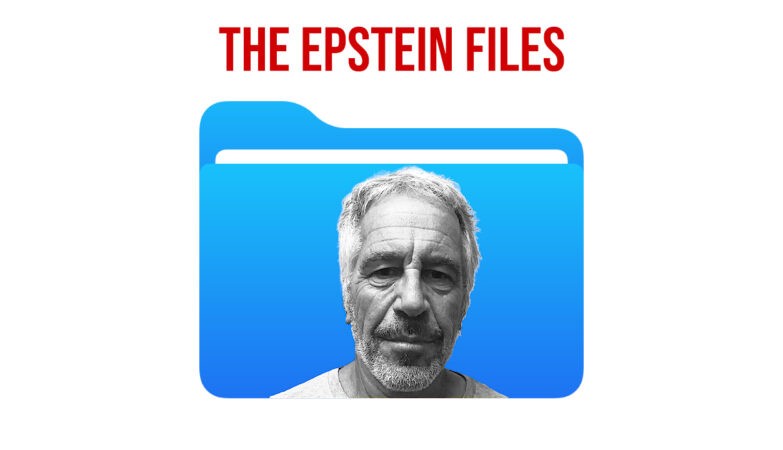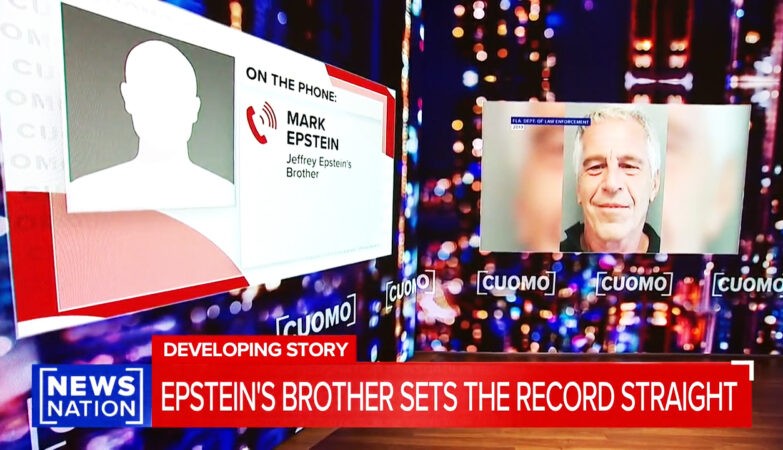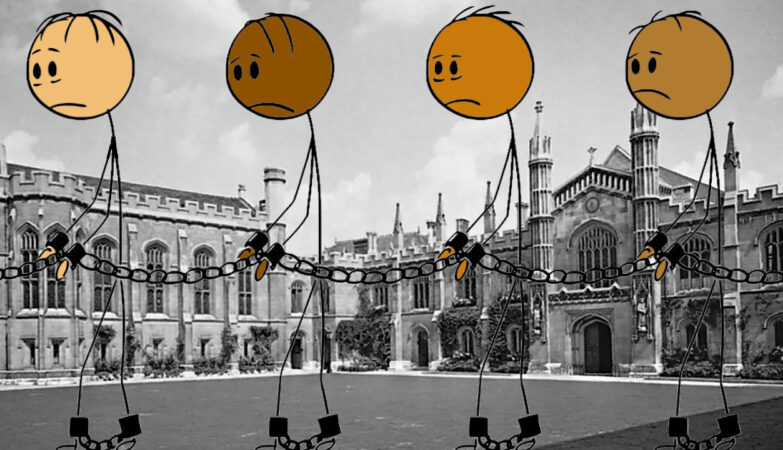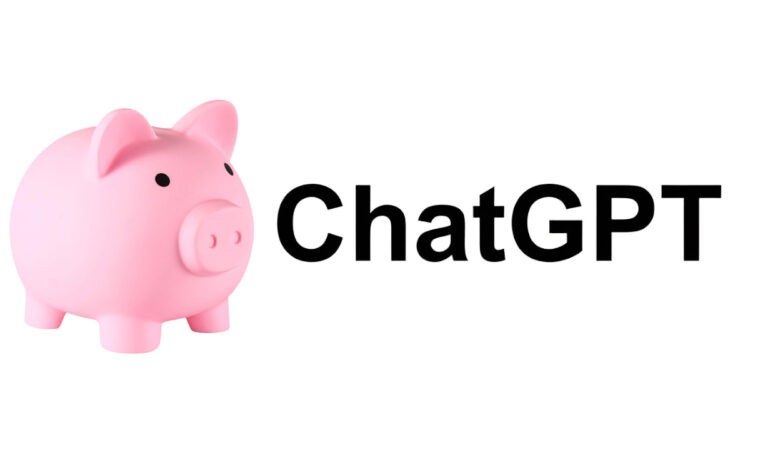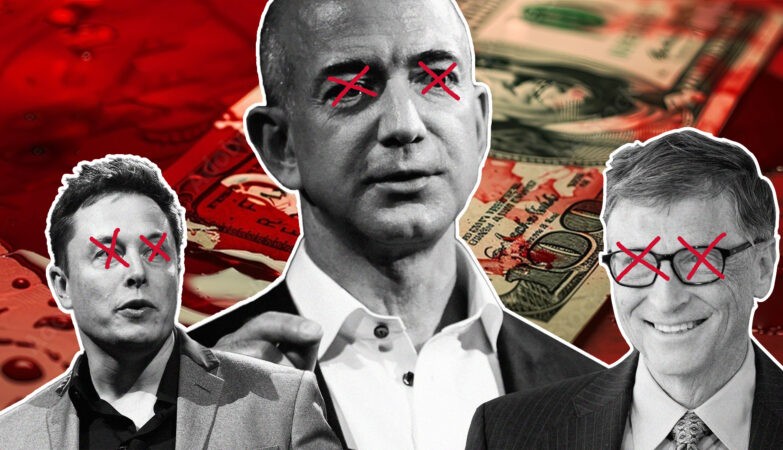While Covid-19 continues to steal the headlines, the multi-century pandemic known as Cancer still deserves the brunt of our attention.
Leading cancer charities in the UK are warning that there is a crisis underway with huge numbers of people not receiving referrals or treatment because they’ve been told to stay at home and not to burden the National Health Service.
The London Telegraph reports that Cancer Research UK stats show that in the 12 months ending in March 2021, a total of 304,555 fewer patients than the previous year were referred to hospitals for urgent checks by GPs.
It represents a drop of 13 percent.
The stats also show that there were 38,800 fewer patients starting cancer treatment, a drop of 12 percent.
According to the research 20,000 fewer people were referred for breast cancer checks alone.
Cancer Research UK’s chief executive, Michelle Mitchell, said: “The UK faces the real possibility of the Covid-19 crisis being replaced with a cancer crisis.”
She added “Sadly, the Covid-19 pandemic has had a devastating impact on cancer services, and the lives of cancer patients, over the past year.”
“It’s not only those who’ve had a cancer diagnosis that we’re worried about – there are thousands of missing cancer patients out there, many of whom would ordinarily have been diagnosed through an urgent referral but haven’t been because of the pandemic,” Mitchell further warned.
The Telegraph also reports multiple instances where people were refused GP appointments for months and DIED of cancer as a result before they were even able to be referred to a hospital for a check.
The Institute for Public Public Policy Research has also presented separate data that indicates survival rates have been set back by up to eight years.
The research suggests that there have been at least 4,500 avoidable cancer deaths this year alone owing to late diagnosis.
Sara Bainbridge, the head of policy at Macmillan Cancer Support, noted “This data shows a devastating year of disruption, which has seen tens of thousands of people missing a diagnosis or experiencing changed and delayed treatment, while their chances of survival potentially worsen.”
The findings add to the mountains of research that already exists suggesting that the ‘cure is worse than the problem’ as regards the COVID pandemic.
As we previously reported, Academics from Duke, Harvard, and Johns Hopkins have concluded that there could be around a million excess deaths over the next two decades as a result of lockdowns.
In October, the World Health Organization’s Regional Director for Europe Hans Kluge said governments should stop enforcing lockdowns, unless as a “last resort,” because the impact on other areas of health and mental well-being is more damaging.
Kluge’s warning matched that of the WHO’s special envoy on COVID-19, Dr David Nabarro, who told the Spectator in an interview that world leaders should stop imposing lockdowns as a reflex reaction because they are making “poor people an awful lot poorer.”
The warnings resonate with numerous other experts who have desperately tried to warn governments that lockdowns will end up killing more people than the virus itself, but have been largely ignored.
Germany’s Minister of Economic Cooperation and Development, Gerd Muller, recently warned that COVID-19 lockdowns will result in “one of the biggest” hunger and poverty crises in history.
“We expect an additional 400,000 deaths from malaria and HIV this year on the African continent alone,” Muller said, adding that “half a million more will die from tuberculosis.”
Muller’s comments arrived months after a leaked study from inside the German Ministry of the Interior revealed that the impact of the country’s lockdown could end up killing more people than the coronavirus due to victims of other serious illnesses not receiving treatment.
Another study found that lockdowns will conservatively “destroy at least seven times more years of human life” than they save.
Professor Richard Sullivan also warned that there will be more excess cancer deaths in the UK than total coronavirus deaths due to people’s access to screenings and treatment being restricted as a result of the lockdown.
His comments were echoed by Peter Nilsson, a Swedish professor of internal medicine and epidemiology at Lund University, who said, “It’s so important to understand that the deaths of COVID-19 will be far less than the deaths caused by societal lockdown when the economy is ruined.”
According to Professor Karol Sikora, an NHS consultant oncologist, there could be 50,000 excess deaths from cancer as a result of routine screenings being suspended during the lockdown in the UK.
A Guardian analysis has found that there have been thousands of excess deaths of people at home in the UK due to the lockdown.
Infectious diseases expert and University of Edinburgh professor Mark Woolhouse acknowledged that the decision to lockdown the UK last March was a “crude measure” that was enacted because “we couldn’t think of anything better to do.”
Woolhouse said the lockdown was a “panic measure” and a “monumental mistake on a global scale,” adding “I believe the harm lockdown is doing to our education, health care access, and broader aspects of our economy and society will turn out to be at least as great as the harm done by COVID-19.”
As was previously highlighted, a data analyst consortium in South Africa found that the economic consequences of the country’s lockdown will lead to 29 times more people dying than the coronavirus itself.
Experts have also warned that there will be 1.4 million deaths globally from untreated TB infections due to the lockdown.
In addition, a study published in The Lancet that notes “physical distancing, school closures, trade restrictions, and country lockdowns” are worsening global child malnutrition.
Thousands of doctors and scientists are also on record as opposing lockdown measures, warning that they will cause more death than the coronavirus itself.
Four stocks with answers
New and remarkable discoveries and treatments have been brought to the fore over recent months, and more are on the way.
According to Allied Market Research, the global oncology/cancer drugs market was valued at $97 billion in 2017, and is estimated to reach $176 billion by 2025.
That forms the context for the present analysis, as we look at several stocks geared up to contribute to the answer, including: Exelixis, Inc. (NASDAQ:EXEL), Bristol-Myers Squibb Co (NYSE:BMY), Nascent Biotech Inc. (OTCMKTS:NBIO), and Merck & Co., Inc. (NYSE:MRK).
Exelixis, Inc. (NASDAQ:EXEL) trumpets itself as a biotechnology company that engages in the discovery, development, and commercialization of new medicines to enhance care and outcomes for people with cancer. The company’s products include CABOMETYX tablets for the treatment of patients with advanced renal cell carcinoma who received prior anti-angiogenic therapy; and COMETRIQ capsules for the treatment of patients with progressive and metastatic medullary thyroid cancer.
Its CABOMETYX and COMETRIQ are derived from cabozantinib, an inhibitor of multiple tyrosine kinases, including MET, AXL, RET, and VEGF receptors. It also offers COTELLIC tablets, an inhibitor of MEK in combination with vemurafenib for the treatment of patients with BRAF V600E or V600K mutation-positive advanced melanoma in the United States; and in combination with vemurafenib in other territories, including the European Union, Switzerland, Canada, Australia, and Brazil.
Exelixis, Inc. (NASDAQ:EXEL) just recently announced positive phase 1b clinical trial results for the combination of cabozantinib (CABOMETYX®) and atezolizumab (TECENTRIQ®) in patients with locally advanced or metastatic solid tumors. Data from two expansion cohorts of the COSMIC-021 trial was presented during the European Society for Medical Oncology (ESMO) Virtual Congress 2020.
“Given the broad experience with cabozantinib as monotherapy for advanced kidney cancer, it’s very exciting to see the growing body of clinical evidence that demonstrates encouraging tolerability and clinical activity when combining cabozantinib with atezolizumab in this disease,” said Dr. Sumanta Pal, Clinical Professor, City of Hope, the principal investigator for the COSMIC-021 study. “We are especially encouraged to see a durable objective response in more than 50% of patients with previously untreated clear cell RCC, paired with an acceptable safety profile at both cabozantinib dose levels evaluated in combination with atezolizumab. We look forward to learning more about the potential of this combination regimen to improve outcomes for patients with advanced kidney cancer from the ongoing phase 3 CONTACT-03 trial.”
Despite the clear impact, this revelation hasn’t been able to hold off sellers, with shares of the stock suffering from clear pressure over the past week, dropping by roughly -4%.
Exelixis, Inc. (NASDAQ:EXEL) pulled in sales of $259.5M in its last reported quarterly financials, representing top line growth of 8%. In addition, the company has a strong balance sheet, with cash levels far exceeding current liabilities ($1.2B against $142.7M).
Bristol-Myers Squibb Co (NYSE:BMY) trumpets itself as a company that discovers, develops, licenses, manufactures, markets, and distributes biopharmaceutical products worldwide. The company offers drugs in various therapeutic classes, such as oncology; cardiovascular; immunoscience; and virology, including human immunodeficiency virus (HIV) infection.
It sells products to wholesalers, retail pharmacies, hospitals, government entities and the medical profession. Bristol-Myers Squibb Company has a research partnership with Sirenas; and a collaboration agreement with Nektar Therapeutics, Illumina, Inc., Janssen Pharmaceuticals, Inc., and Advantagene, Inc., as well as Tsinghua University.
Bristol-Myers Squibb Co (NYSE:BMY) and MyoKardia, Inc. (Nasdaq:MYOK) today announced a definitive merger agreement under which Bristol Myers Squibb will acquire MyoKardia for $13.1 billion, or $225.00 per share in cash. The transaction was unanimously approved by both the Bristol Myers Squibb and MyoKardia Boards of Directors and is anticipated to close during the fourth quarter of 2020.
According to the release, MyoKardia is a clinical-stage biopharmaceutical company discovering and developing targeted therapies for the treatment of serious cardiovascular diseases. Through the transaction, Bristol Myers Squibb gains mavacamten, a potential first-in-class cardiovascular medicine for the treatment of obstructive hypertrophic cardiomyopathy (“HCM”), a chronic heart disease with high morbidity and patient impact. A New Drug Application (“NDA”) for mavacamten for the treatment of symptomatic obstructive HCM – based on data from the EXPLORER-HCM study – is expected to be submitted to the U.S. Food and Drug Administration (“FDA”) in the first quarter of 2021. Bristol Myers Squibb expects to explore the full potential of mavacamten in additional indications, including non-obstructive HCM, as well as develop MyoKardia’s promising pipeline of novel compounds, including two clinical-stage therapeutics: danicamtiv (formerly MYK-491) and MYK-224.
While this is a clear positive, it hasn’t been enough to shift the tone of recent action, with BMY shares sinking something like -4% in the past week.
Bristol-Myers Squibb Co (NYSE:BMY) pulled in sales of $10.1B in its last reported quarterly financials, representing top line growth of 61.5%. In addition, the company is battling some balance sheet hurdles, with cash levels struggling to keep up with current liabilities ($21.9B against $23.4B, respectively).
Nascent Biotech Inc. (OTCMKTS:NBIO) is another interesting cancer play, but significantly more speculative in nature. However, this may also suggest it could have the greatest upside potential from present levels. its flagship mAb oncology drug candidate, Pritumumab, which is targeted at CNS gliomas (brain cancer), but other cancers share a common molecular target, vimentin, and NBIO aims to assign other cancer treatment indications to Pritumumab as a result. Pritumumab is a “fully natural human IgG antibody” that is intended to treat epithelial cancers (which include lung, breast, colon, brain, and pancreas).
The FDA has progressed with the company’s Investigational New Drug (IND) application, allowing NBIO to set up for a phase 1 clinical trial. Once the application is approved, the company will likely move immediately to kick off that trial. A successful course of trials will, in theory, eventually allow the company to bring the drug to market where it will have little in the way of serious competition given the poor outcomes currently defining the brain cancer treatment context.
Nascent Biotech Inc. (OTCMKTS:NBIO) just announced this morning that the company is in the process of making significant additions to its core team in order to prepare for the initiation of key Phase One clinical trials to study the safety and efficacy of the Company’s flagship drug, Pritumumab (PTB), a monoclonal antibody, for the treatment of Brain Cancer.
According to the release, effective November 1, 2020, Douglas Karas, a board director of Nascent Biotech for the past four years, joins the Company’s core team as Chief Operating Officer and head of Corporate Development and Dr. Ivan Babic, who has been involved with the Company since 2014, joins officially as Consulting Director of Research.
Sean Carrick, CEO of Nascent Biotech, commented, “As the Company moves into its clinical stage, personnel additions are necessary to support the transition of Nascent Biotech into a key player in the oncology arena by matching the caliber and promise of our intellectual property with an experienced, talented, and credible team.”
Nascent Biotech Inc (OTCMKTS:NBIO) has managed to emerge from its R&D phase into a clinical stage without a heavy debt-load, which suggests management has executed well into this stage.
Merck & Co., Inc. (NYSE:MRK) bills itself as a company that provides healthcare solutions worldwide. It operates in four segments: Pharmaceutical, Animal Health, Healthcare Services, and Alliances.
In addition, the company offers products to prevent chemotherapy-induced and post-operative nausea and vomiting; treat brain tumors, and metastatic non-small-cell lung cancer; prevent diseases caused by human papillomavirus; and vaccines for measles, mumps, rubella, varicella, shingles, rotavirus gastroenteritis, and pneumococcal diseases.
Merck & Co., Inc. (NYSE:MRK) recently announced first-time data from the pivotal Phase 3 KEYNOTE-590 trial evaluating KEYTRUDA, Merck’s anti-PD-1 therapy, in combination with platinum-based chemotherapy (cisplatin plus 5-fluorouracil [5-FU]) for the first-line treatment of patients with locally advanced or metastatic esophageal and gastroesophageal junction (GEJ) cancer. In the study, KEYTRUDA in combination with chemotherapy significantly improved overall survival (OS), reducing the risk of death by 27% [HR=0.73 [95% CI, 0.62-0.86]; p<0.0001], versus chemotherapy in all randomized patients.
According to the company’s release, KEYTRUDA in combination with chemotherapy also significantly improved progression-free survival (PFS), reducing the risk of disease progression or death by 35% or more than a third [HR=0.65 [95% CI, 0.55-0.76]; p<0.0001] in all randomized patients. With these results, KEYTRUDA is the first anti-PD-1 therapy in combination with chemotherapy to show superior OS, PFS and objective response rates (ORR) versus chemotherapy, the current standard of care, for these patients regardless of histology or PD-L1 expression status.
Despite the clear impact, this revelation hasn’t been able to hold off sellers, with shares of the stock suffering from clear pressure over the past week, dropping by roughly -3%. Over the past month, shares of the stock have suffered from clear selling pressure, dropping by roughly -4%.
Merck & Co., Inc. (NYSE:MRK) pulled in sales of $10.8B in its last reported quarterly financials, representing top line growth of -7.2%. In addition, the company is battling some balance sheet hurdles, with cash levels struggling to keep up with current liabilities ($11.1B against $22.2B, respectively).
- https://summit.news/2021/05/24/report-devastating-cancer-crisis-has-been-caused-by-stay-at-home-orders/
- https://biopharmajournal.com/2020/10/07/cancer-is-still-the-real-global-health-crisis-four-stocks-with-answers-exel-bmy-nbio-mrk/
- Why Student Loans Are a Scam - January 18, 2026
- Nick Shirley Is a Retard - January 13, 2026
- Here Are All of the Epstein Files So Far - January 11, 2026

